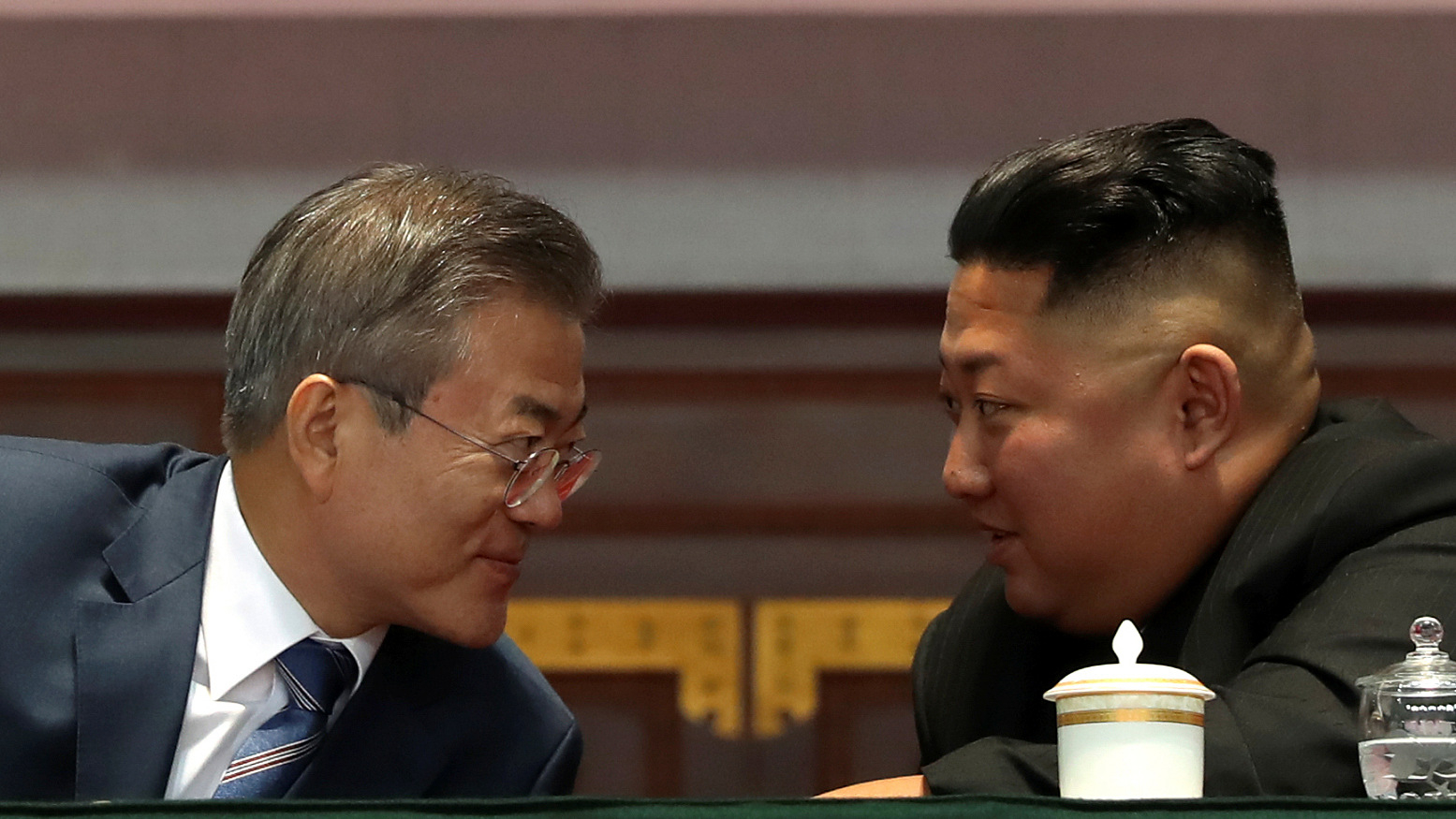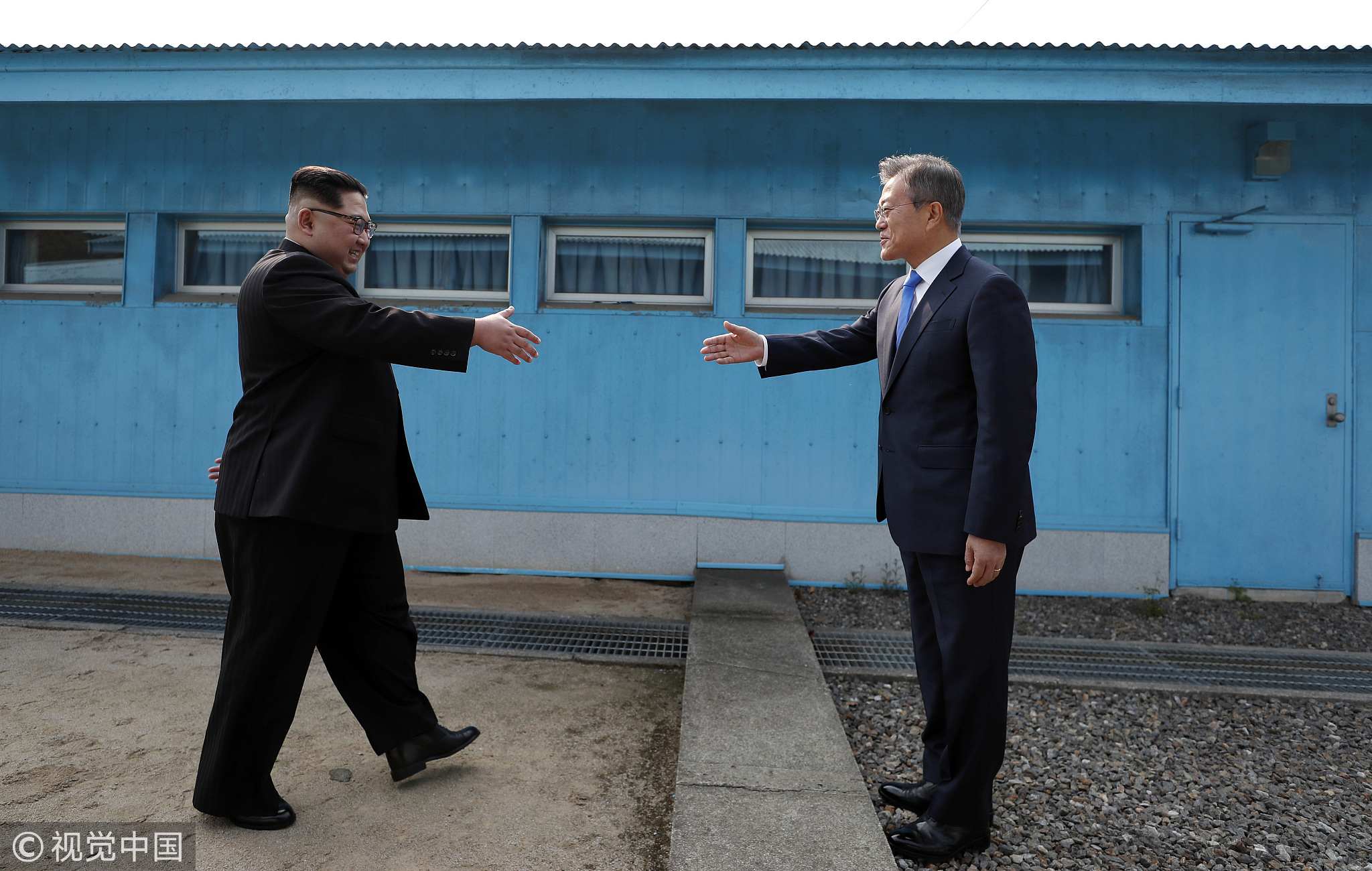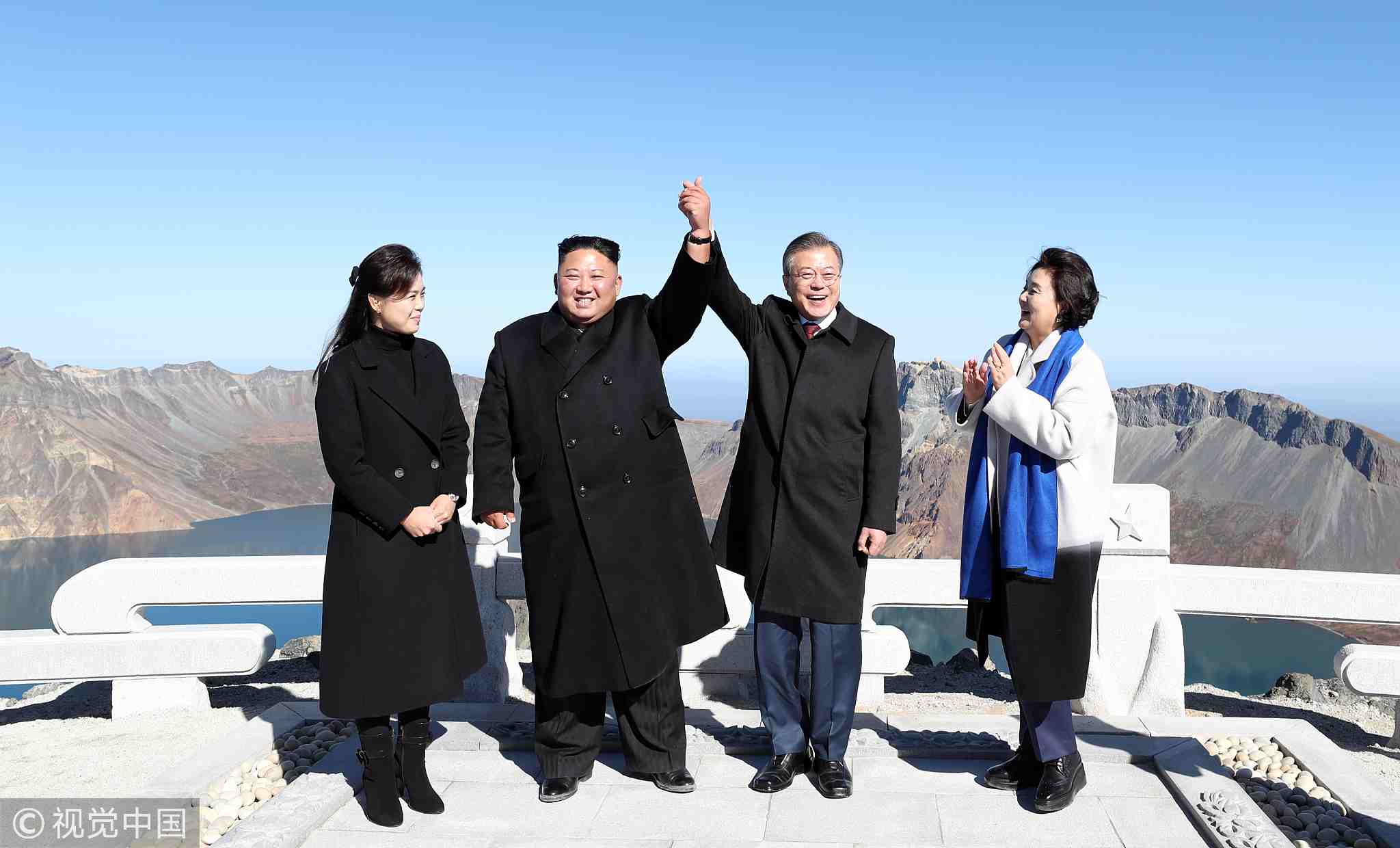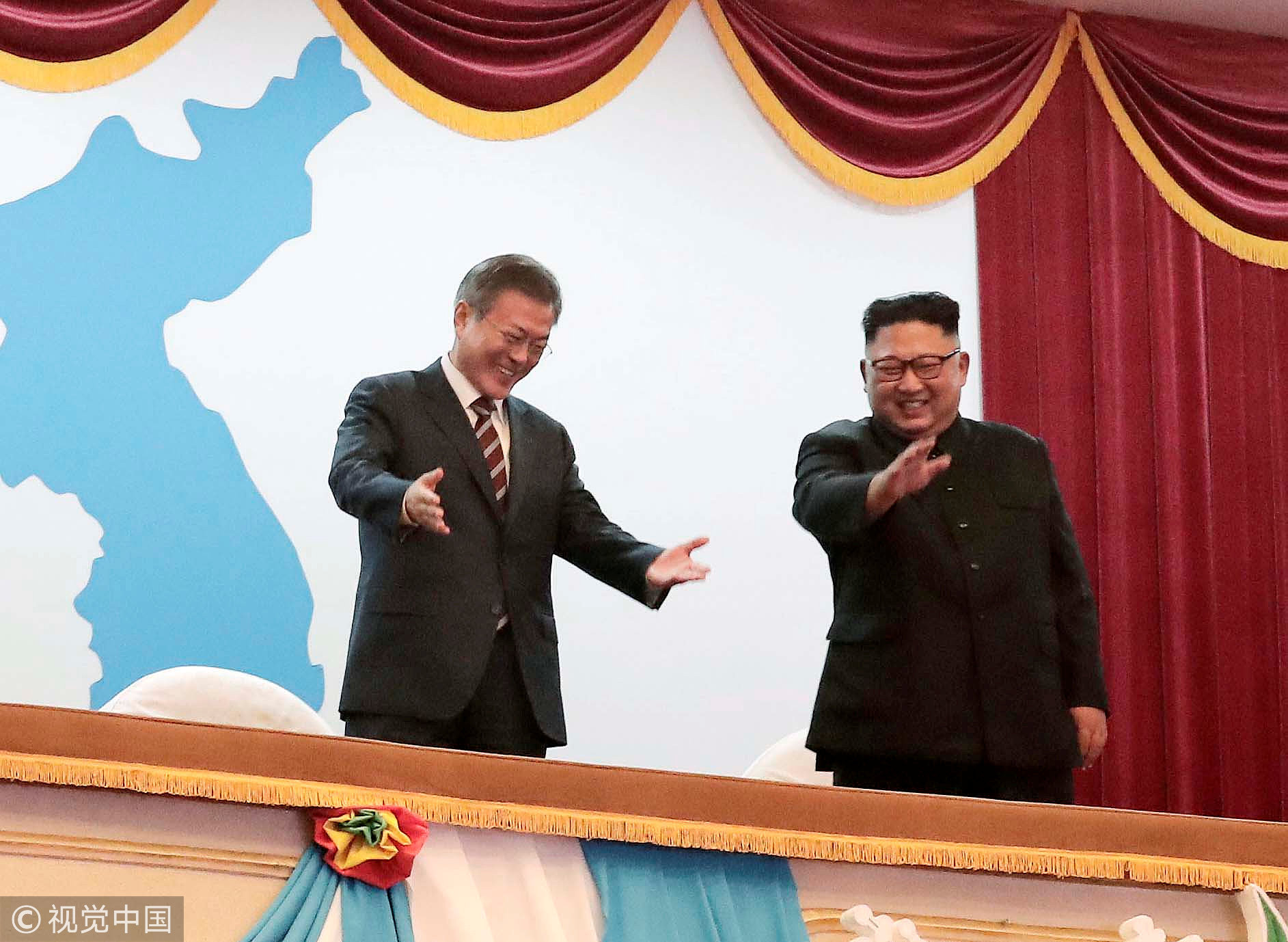
Opinions
10:31, 06-Dec-2018
Opinion: A visit by Kim to Seoul is a good incentive for DPRK
Updated
09:58, 09-Dec-2018
Tom Fowdy

Editor's note: Tom Fowdy is a UK-based political analyst. The article reflects the author's views, and not necessarily those of CGTN.
Days after proposals for a second Trump-Kim summit were announced, foreign media are now rife with speculation that the Democratic People's Republic of Korea (DPRK) leader could soon be visiting the capital of the Republic of Korea (ROK) later this month.
The visit, proposed as early as the first Panmunjom summit between Kim and President Moon Jae-in, would stand to be historic as it would be the first time a DPRK leader has ever visited the capital of its southern neighbor.
On Wednesday, the ROK Ministry of Unification stated that discussions on such a visit were not "concrete," but nevertheless it is understood that if talks between Pyongyang and the United States gain momentum such a trip remains a strong possibility.

Kim Jong Un (L) and Moon Jae-in (R) shake hands over the military demarcation line upon meeting for the Inter-Korean Summit in Panmunjom, April 27, 2018. /VCG Photo
Kim Jong Un (L) and Moon Jae-in (R) shake hands over the military demarcation line upon meeting for the Inter-Korean Summit in Panmunjom, April 27, 2018. /VCG Photo
Whilst Kim's visit to Seoul would prove extremely controversial to Conservatives within ROK, it should be assessed as a good incentive for the DPRK leader. Not only will this event further consolidate the growing peace on the Korean Peninsula, it will also serve as an enormous step forward in opening his country up to the wider world and giving motivation for its future economic development.
There are some longstanding reasons why no DPRK leader has ever visited a place like Seoul even when ties between the two countries were amicable during the early 2000s.
The Korean conflict is not just a military issue, it is fundamentally political.
Since the division of the peninsula in 1945 and then the establishment of two separate states in 1948, both governments have competed as rivals over who is the legitimate ruler of all Korea. Neither has officially recognized their counterpart, arguing that the other is an illegitimate occupation of territory by a government imposed by a foreign power (the United States or the former Soviet Union). Thus, beyond all aspects of physical fighting, this has accumulated into a decades-long ideological and political struggle.

DPRK leader Kim Jong Un (2nd L) and his wife Ri Sol Ju (L) pose with ROK President Moon Jae-in (2nd R) and his wife Kim Jung-sook (R) on top of Mount Paektu in Mount Paektu, DPRK, September 20, 2018. /VCG Photo
DPRK leader Kim Jong Un (2nd L) and his wife Ri Sol Ju (L) pose with ROK President Moon Jae-in (2nd R) and his wife Kim Jung-sook (R) on top of Mount Paektu in Mount Paektu, DPRK, September 20, 2018. /VCG Photo
Despite initially starting off poorer and more chaotic than the DPRK, the ROK would gain the upper hand. Throughout the 1970s and 1980s, the country initiated one of the most successful phases of national development in history. Seoul leapfrogged from an agricultural backwater into one of the world's economic leaders, becoming a leading exporter of technology.
Pyongyang, on the other hand, fell behind due to its unwillingness to consider reforms and then the demise of the former Soviet Union, on which its entire economy and trade foundation were built, leading to a retraction of GDP by an estimated 40 percent.
The 1990s thus accumulated an enormous contrast between the two Koreas. The ROK was successful, vibrant and booming; the DPRK was impoverished, undeveloped and struggling. Seemingly fragile, it feared for its very survival in a U.S. unipolar world and a subsequent absorption by its neighbor.
Therefore, during the "sunshine policy" period of reconciliation in the early 2000s, no DPRK leader visited Seoul in the fear that an indirect political endorsement of its wealthier counterpart could lead to their own demise. This has set up a trend whereby ROK leaders have been willing to travel northwards to Pyongyang, but where nobody else went the other way.
Now, however, this is miraculously changing. First, Kim Jong Un's sister, Kim Yo Young, visited Seoul in early 2018. It was the first time a member of the leading Kim family had done so. Then, during the famous Panmunjom Summit in April, Kim Jong Un entered the ROK via the joint security area in the DMZ, in a first for a DPRK supreme leader.

ROK President Moon Jae-in (L) stands next to DPRK leader Kim Jong Un as they watch an art performance at Pyongyang Grand Theatre in Pyongyang, DPRK, September 18, 2018. /VCG Photo.
ROK President Moon Jae-in (L) stands next to DPRK leader Kim Jong Un as they watch an art performance at Pyongyang Grand Theatre in Pyongyang, DPRK, September 18, 2018. /VCG Photo.
Seoul, however, would be a new and much more unprecedented step. Whilst he is knowledgeable of life there, Kim would nevertheless face a new experience witnessing directly the sprawling urban spread of this megacity and its scenes of vibrant modernity and prosperity.
He would see his own culture and people before him, but in a different setting. In his mind, it would stand as an aspiration to him what the DPRK should aim to become like. Whilst the political systems of the two Koreas are also different, it would nevertheless give him an incentive. He would undoubtedly be desirous to replicate elements of that.
However, to do so, he must establish peace with the Blue House and the White House in order to facilitate a deal to get international sanctions lifted. Although there are differences in how it should be done, such a visit would surely increase his desire to find some kind of breakthrough, if all parties can work together.
After all, Kim's goals to develop the DPRK economy and make room for reforms are well known. He has been more open about the country's economic struggles than his predecessors.
A visit to Seoul can only increase recognition that things should be better back home. But regardless, it is a bold move. It's no longer a reclusive and isolated DPRK, but one that is taking steps into previously uncharted territory. It's a progress to say the least.
(If you want to contribute and have specific expertise, please contact us at opinions@cgtn.com.)

SITEMAP
Copyright © 2018 CGTN. Beijing ICP prepared NO.16065310-3
Copyright © 2018 CGTN. Beijing ICP prepared NO.16065310-3